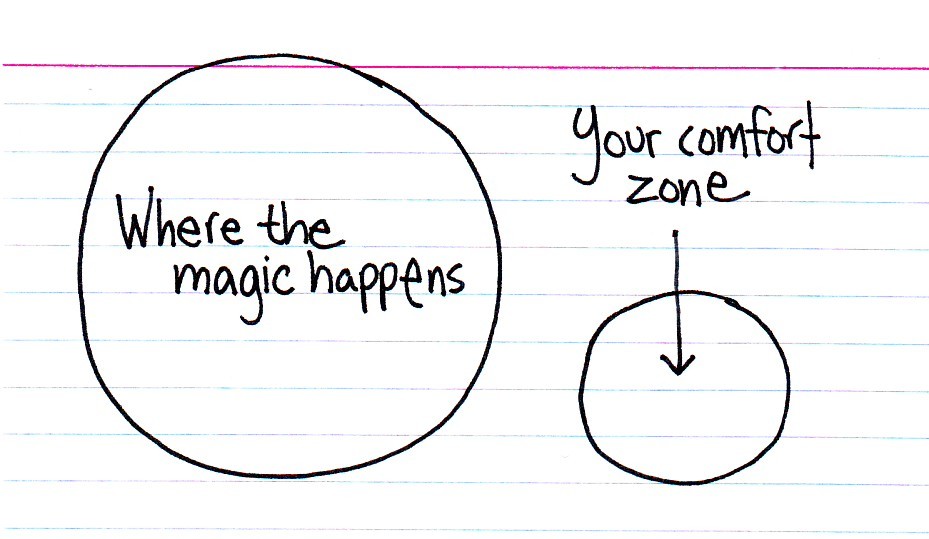Why Your Best Career Moves Happen in the Discomfort Zone: A Lesson for Student-Athletes

As a student-athlete, you’re no stranger to pushing through discomfort. Whether it’s the pressure of balancing academics with training or stepping up in the biggest moments on the field, you’ve already learned the value of stepping outside your comfort zone. But the real growth happens when you lean into discomfort, especially as you transition from college athletics to your professional career.
You’ve probably heard the advice: “Play it safe,” “Stick to what you know,” or “Don’t take risks.” But here’s the truth: success doesn’t come from playing it safe. It comes from embracing the uncertainty and discomfort that comes with stepping into the unknown.
Let’s look at why some of the best career moves happen when we step into that discomfort zone and how you can make the most of it.
The Power of Starting Over
As you make the transition from being an athlete to your next career, you might face a moment of uncertainty. Just like in sports, this moment can feel uncomfortable—whether it’s entering a new industry, pursuing a different field, or even just landing your first full-time job. But much like how you handle nerves before a big game, you can use that discomfort to fuel your next chapter.
Take a moment to reflect on your athletic career. Were you ever really ready for that big game or championship? Probably not. You were likely facing nerves and discomfort. But you used that energy to push through. The same applies to your career. The discomfort of stepping into the unknown is where the magic happens, and it’s how you’ll uncover new skills and strengths.
Growth Doesn’t Happen in the Comfort Zone
You already know this as an athlete: growth happens in the tough practices, the hours of training when you feel like giving up. When you face challenges, whether it’s an injury, a tough loss, or a difficult exam, that’s when you push your limits and get better. In your career, the same rule applies. The discomfort of tackling new challenges—whether it’s learning a new skill, making a cold call, or negotiating a job offer—will lead to your greatest growth.
The Real Risk is Staying Comfortable
As a student-athlete, you’re used to putting yourself out there, taking risks, and testing your limits. The risk in your career isn’t about trying something new. The real risk is staying comfortable, not taking the leap, and letting opportunities pass you by.
In your career search, you may face rejection, uncertainty, and imposter syndrome. But don’t let that hold you back. Remember that discomfort is part of the process, and overcoming it will lead you to the opportunities you’re destined for. Avoiding those tough situations might keep you safe in the short term, but in the long run, it will hold you back from reaching your full potential.
How to Lean Into Discomfort: A Practical Guide
Just as you trained for years to become the athlete you are today, you can train yourself to handle discomfort in your career:
- Start with small steps: Like setting up informational interviews, applying for internships, or networking. These are actions that might feel uncomfortable at first, but they’re necessary to your growth.
- Reframe your discomfort: When you feel nervous or anxious about an interview or a new project, see it as a sign of growth. That discomfort is signaling that you’re on the right track.
- Embrace uncertainty: In sports, not knowing how a game will end is part of the thrill. Similarly, uncertainty in your career is an opportunity to explore different paths and discover what truly excites you.
Your best career moves, the ones that will propel you forward, are waiting for you just beyond your comfort zone. Remember, the most successful people are the ones who lean into discomfort, adapt, and use it to their advantage.
As you navigate your post-college life and enter the workforce, don’t shy away from challenges—embrace them. Just like in sports, your best moments and opportunities are found when you take that next step into the unknown.

